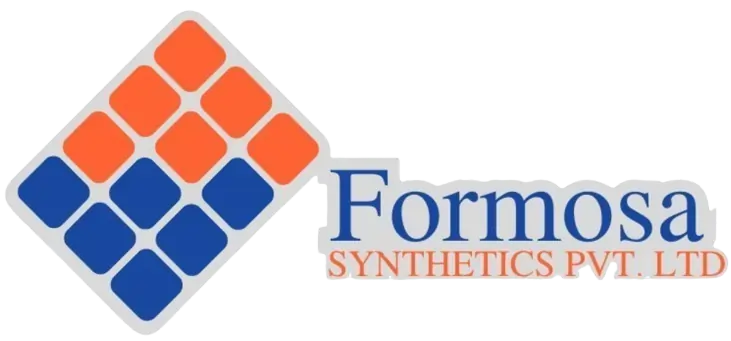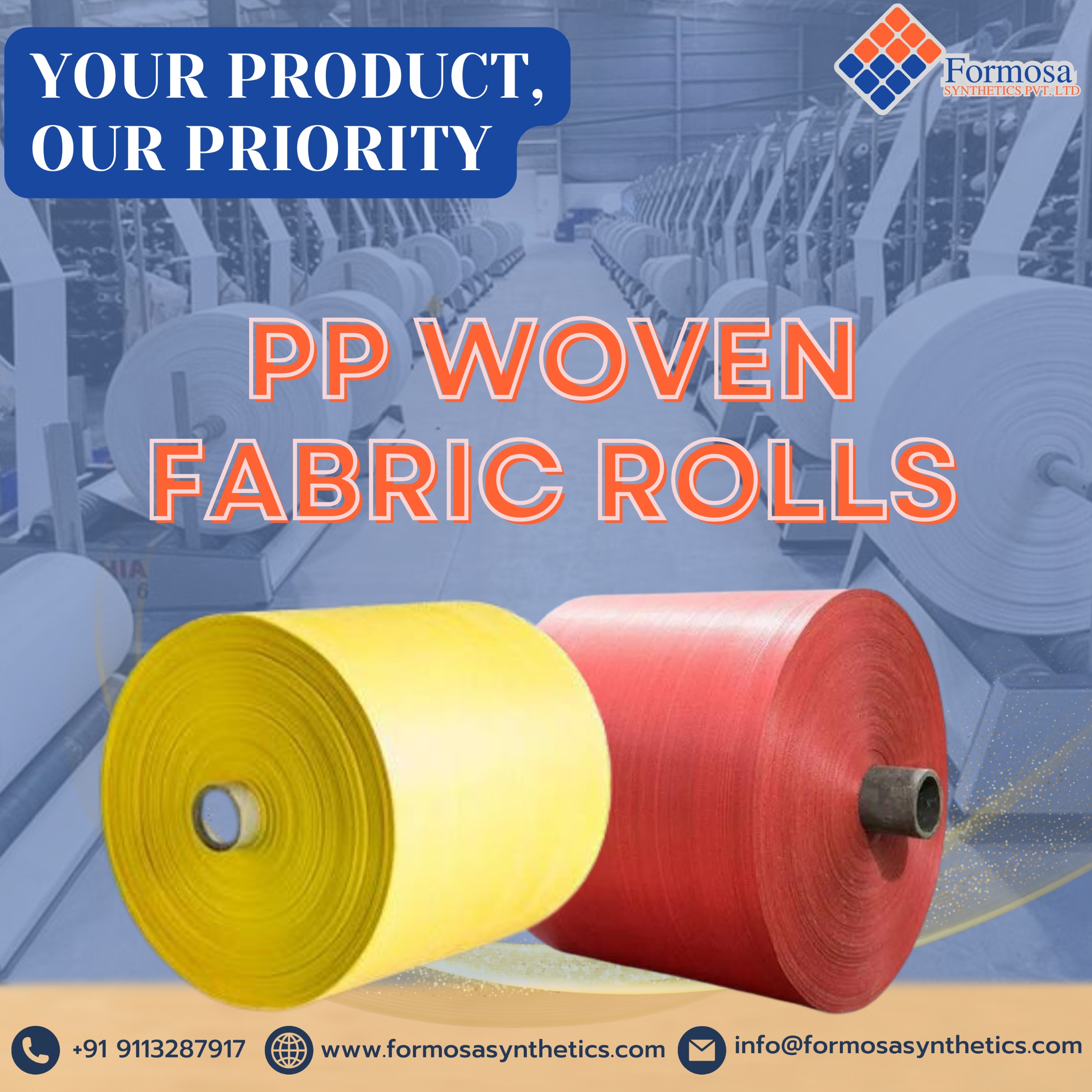Description
PP woven fabric is a robust and versatile material made from polypropylene threads, known for its high tensile strength and tear resistance. Widely used in agriculture, construction, and packaging, it excels in heavy-duty applications like crop covers, geotextiles, and bulk bags. Key features include water resistance and UV resistance, with options for lamination or coating to enhance properties for specific uses such as waterproof tarpaulins and protective covers. When selecting PP woven fabric, consider its weight, thickness, strength, and durability to ensure it meets your application needs, providing a cost-effective and reliable solution.
Physical Characteristics
Understanding the physical characteristics of PP woven fabric is essential for selecting the right type for your needs. Here are key factors to consider:
1. Weight and Thickness:
The weight and thickness determine suitability for different applications. Lighter fabrics suit agricultural uses and packaging, while heavier fabrics are ideal for industrial applications requiring extra strength. Always check the GSM (grams per square meter).
2. Strength and Durability:
PP woven fabric is known for its high tensile strength, making it resistant to tears and punctures. This is crucial for construction and other industrial projects needing robustness.
3. Water and Chemical Resistance:
With excellent water and chemical resistance, PP woven fabrics are ideal for environments with moisture or chemicals, such as chemical packaging and outdoor uses. The fabric’s coating provides extra protection.
4. UV Resistance:
UV-treated PP woven fabrics can withstand prolonged sunlight exposure, perfect for agriculture, outdoor storage, and construction. UV resistance extends the product’s lifespan.
5. Breathability and Air Permeability:
Breathable PP woven fabrics allow air flow while maintaining strength. This is beneficial for agricultural covers and ventilated bulk bags in various industries.
Consider Application
When selecting the perfect PP woven fabric, it’s crucial to consider the specific application to ensure optimal performance and longevity. Here are some key applications:
1. Agriculture and Horticulture:
PP woven fabric is essential for ground cover, weed control, and crop protection in agriculture and horticulture. Its durability and UV resistance make it ideal for outdoor use, providing long-lasting protection against harsh weather conditions.
2. Construction and Infrastructure:
In the construction and infrastructure sectors, PP woven fabric is commonly used for geotextiles, erosion control, and reinforcement applications. Its high tensile strength and durability ensure it can withstand heavy loads and harsh environmental conditions.
3. Packaging and Transport:
PP woven fabric is favored in the packaging and transport industry for its robustness and flexibility. It is used to manufacture big bags (FIBCs), sandbags, and various protective covers, offering resistance to tearing and the ability to handle heavy loads.
4. Home and Outdoor Use:
For home and outdoor use, PP woven fabric offers versatile solutions such as garden furniture covers, tarpaulins, and awnings. Its water-resistant properties and UV resistance make it perfect for protecting outdoor furniture and equipment from rain and sun damage.
By considering these specific applications, you can better determine the type of PP woven fabric that will meet your needs, ensuring durability and performance across different environments and uses.
Type Of Fabric
Selecting the right PP woven fabric involves understanding its different types:
1. Coated vs. Uncoated:
Coated PP woven fabric offers enhanced protection against moisture, chemicals, and UV rays, ideal for outdoor use. Uncoated PP woven fabric is more breathable and flexible, suitable for indoor or less demanding projects.
2. Laminated vs. Non-Laminated:
Laminated PP woven fabric is reinforced for increased strength, durability, and water resistance, perfect for heavy-duty applications. Non-laminated PP woven fabric is lighter and more cost-effective, suitable for temporary solutions.
3. UV Treated vs. Non-UV Treated:
UV treated PP woven fabric withstands prolonged exposure to sunlight without degradation, crucial for outdoor use. Non-UV treated PP woven fabric is less suitable for prolonged outdoor use without protection.
4. Special Features and Additives:
PP woven fabric may include:
- Anti-Slip Properties: Enhances stability and grip, ideal for packaging or flooring.
- Anti-Bacterial Treatment: Inhibits bacterial growth, suitable for medical or food packaging.
- Flame Retardant Treatment: Reduces flammability, safer for construction or industrial use.
Understanding these types helps you choose the fabric that best suits your project’s requirements, whether it’s durability, weather resistance, or special features.
Choosing the Right Supplier
When selecting the ideal supplier for your PP woven fabric requirements, prioritize factors like adherence to industry quality standards and certifications, supplier reputation and reviews, availability of customization options, and competitive pricing structures. Look for certifications such as ISO 9001 to ensure quality management systems are in place. Investigate supplier reputations through customer reviews and testimonials to gauge satisfaction levels. Opt for suppliers offering customization options to meet your project’s unique needs. While cost is important, ensure it doesn’t compromise quality. Consider partnering with trusted suppliers like Formosa Synthetics Pvt. Ltd. By considering these factors, you can confidently choose a supplier that aligns with your requirements and ensures the success of your PP woven fabric project. For further insights into PP woven fabric types and applications, explore our comprehensive guide.
Conclusion
In conclusion, selecting the perfect PP woven fabric requires thorough consideration of various factors, from its physical characteristics to specific application needs. Understanding the fabric’s weight, strength, and durability ensures it meets project demands, while considering factors like coating, lamination, and UV treatment helps tailor the fabric to environmental conditions. Choosing a reputable supplier like Formosa Synthetics Pvt. Ltd. is essential for quality assurance and competitive pricing. By following this guide, you can confidently select the ideal PP woven fabric for your project, ensuring durability and performance. For further assistance, explore our website or contact us directly.
FAQs
What is PP woven fabric?
PP woven fabric is a type of material made from polypropylene threads woven together, renowned for its durability and versatility. It is commonly used in various industries for applications ranging from agriculture to construction and packaging.
What are the primary uses of PP woven fabric?
PP woven fabric finds extensive use in agriculture for crop protection, ground cover, and weed control. It is also prevalent in construction for geotextiles, erosion control, and reinforcement applications. Additionally, it is used in packaging and transport for making big bags (FIBCs), sandbags, and protective covers.
What are the key factors to consider when choosing PP woven fabric?
Important factors to consider include weight and thickness, strength and durability, water and chemical resistance, UV resistance, and breathability. Additionally, the specific application and environmental conditions should be taken into account.
What are the differences between coated and uncoated PP woven fabric?
Coated PP woven fabric is treated with a coating that provides enhanced protection against moisture, chemicals, and UV rays, making it suitable for outdoor use. Uncoated PP woven fabric is more breathable and flexible, often preferred for indoor or less demanding applications.
How do I determine the right supplier for PP woven fabric?
When selecting a supplier, consider factors such as adherence to industry quality standards and certifications, reputation and reviews from previous customers, availability of customization options, and competitive pricing structures. It’s also essential to ensure the supplier offers reliable customer support and timely delivery.




